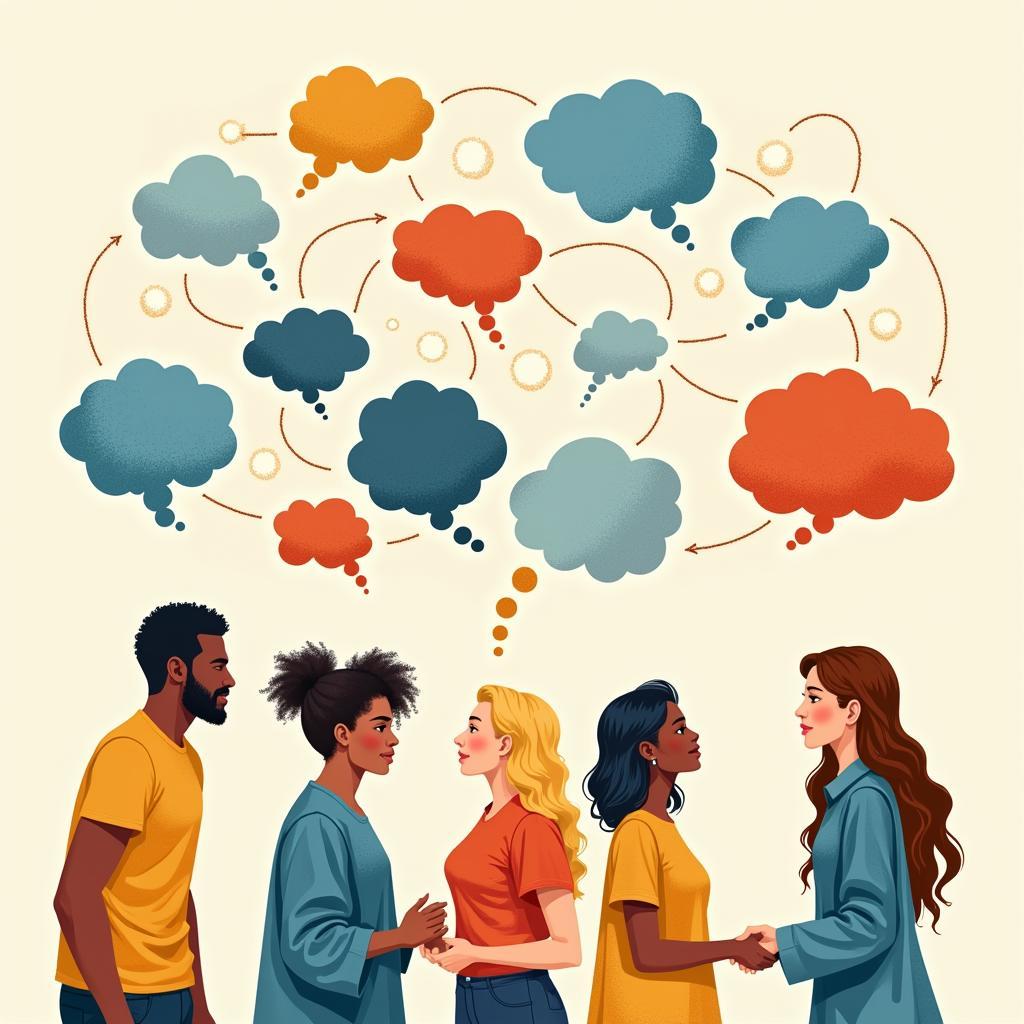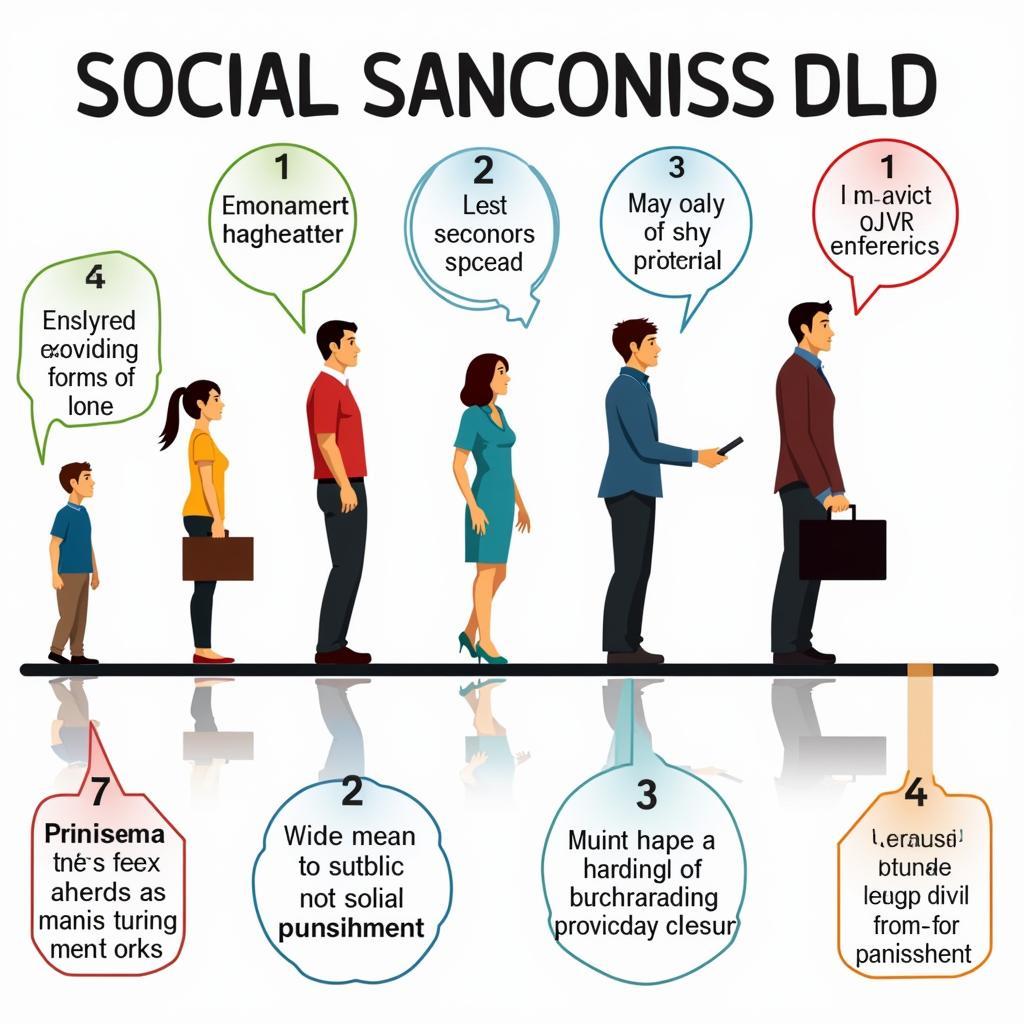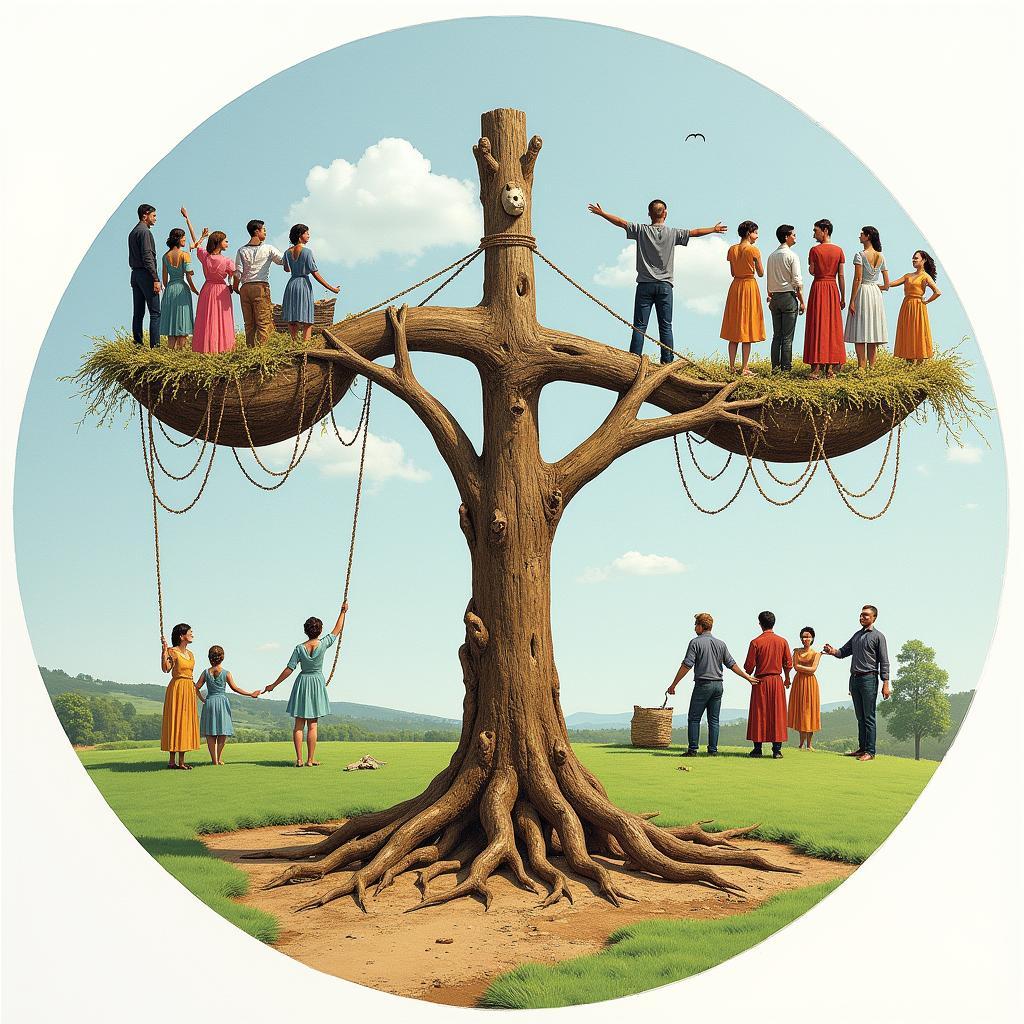From the moment we’re born, we are both consciously and subconsciously taught the unwritten rules of society. These norms, values, and beliefs dictate acceptable behavior and are reinforced through a complex system of social control mechanisms. But why do societies go to such lengths to maintain order and stability? The answer lies in the very fabric of human civilization.
The Underlying Need for Social Control
Societies, regardless of size or structure, rely on a certain degree of conformity to function. Social control mechanisms, ranging from informal cues to formal laws, help to:
- Minimize Chaos and Conflict: Imagine a world without rules or consequences. Social control, while sometimes perceived as restrictive, provides a framework for peaceful coexistence. It helps prevent anarchy and ensures that individuals can pursue their goals within a predictable social environment.
- Promote Cooperation and Solidarity: Shared norms and values foster a sense of community. When individuals feel connected through a shared understanding of right and wrong, they are more likely to cooperate and support one another. This collective spirit is essential for a society to thrive.
- Transmit Cultural Knowledge: Social control is instrumental in passing down cultural norms and traditions from one generation to the next. This ensures the continuity of cultural heritage and helps maintain a society’s identity over time.
 People of diverse backgrounds interacting with thought bubbles depicting societal norms
People of diverse backgrounds interacting with thought bubbles depicting societal norms
The Spectrum of Social Control: From Subtle Cues to Formal Sanctions
Societies employ a diverse range of mechanisms to regulate behavior. These can be broadly categorized as:
1. Informal Social Control: The Power of Unspoken Rules
This category encompasses the subtle yet powerful ways in which we influence each other’s behavior in our daily lives. Think:
- Social Norms: These are unwritten rules of conduct that are widely accepted within a particular group or society. They guide our everyday interactions, often without us even realizing it. For example, standing in line or saying “please” and “thank you.”
- Socialization: From childhood, we learn societal expectations through our interactions with family, peers, and institutions. This process instills in us the values and norms of our culture.
- Public Opinion: The fear of social disapproval or the desire for social acceptance can be a potent motivator. Gossip, ridicule, and social exclusion can all serve as informal sanctions for deviating from societal norms.
 Visual representation of various social sanctions
Visual representation of various social sanctions
2. Formal Social Control: Institutions and Laws
When informal mechanisms prove insufficient, societies turn to more formalized systems of control:
- Laws and Regulations: These codified rules, enforced by the state, clearly define unacceptable behavior and outline associated punishments. They provide a structured framework for addressing violations and maintaining order on a larger scale.
- Law Enforcement and Judicial Systems: Police forces, courts, and correctional facilities all play a role in upholding laws, investigating crimes, and administering justice.
- Institutions: Educational institutions, workplaces, and religious organizations often have their own sets of rules and codes of conduct that contribute to social control within their specific domains.
Striking a Balance: Social Control and Individual Freedom
The quest for social order must be carefully balanced with the preservation of individual liberty. Excessive control can stifle creativity, dissent, and progress.
- The Danger of Groupthink: When social control mechanisms are too rigid, they can suppress critical thinking and individual expression, leading to a dangerous conformity of thought.
- The Importance of Due Process: Formal systems of social control must operate within a framework of justice and fairness. This includes ensuring due process, protecting individual rights, and guarding against the abuse of power.
 Symbolic representation of balancing social order and individual liberties
Symbolic representation of balancing social order and individual liberties
Conclusion: Towards a Just and Harmonious Society
Social control is an inherent aspect of human societies, essential for maintaining order, stability, and cooperation. However, it’s crucial to strive for a balance that respects individual freedoms and encourages critical thinking. By fostering open dialogue and promoting just and equitable systems, we can work towards creating societies that are both harmonious and free.
FAQs
1. What is an example of a social control mechanism in action?
Imagine someone cutting in line at a grocery store. Other customers might glare, make comments, or even report the behavior to an employee. These reactions serve as informal social control, discouraging the individual from repeating the behavior.
2. Can social control mechanisms change over time?
Absolutely! As societal values and norms evolve, so too do the mechanisms used to maintain order. For example, laws regarding marriage equality have shifted significantly in recent years, reflecting changing attitudes towards same-sex relationships.
3. How can individuals challenge unjust social control?
Throughout history, individuals and movements have challenged discriminatory laws and oppressive social norms. Peaceful protests, civil disobedience, and raising awareness through various forms of media are all ways to advocate for positive change.
4. Is social control always a bad thing?
Not necessarily. Social control is essential for preventing chaos and harm. For example, laws against theft and violence protect individuals and their property, contributing to a safer society.
5. What role can education play in promoting responsible social control?
Education is key to fostering critical thinking and promoting empathy. By teaching individuals about different cultures, perspectives, and the importance of human rights, education can help create a more just and equitable society.
Need Help? We’re Here for You.
Do you have questions or need support regarding issues related to peacebuilding and social harmony? Contact us!
Phone: 02043854663
Email: [email protected]
Address: Khu 34, Bắc Giang, 260000, Việt Nam
Our dedicated team is available 24/7 to assist you. Let’s work together towards a more peaceful world.